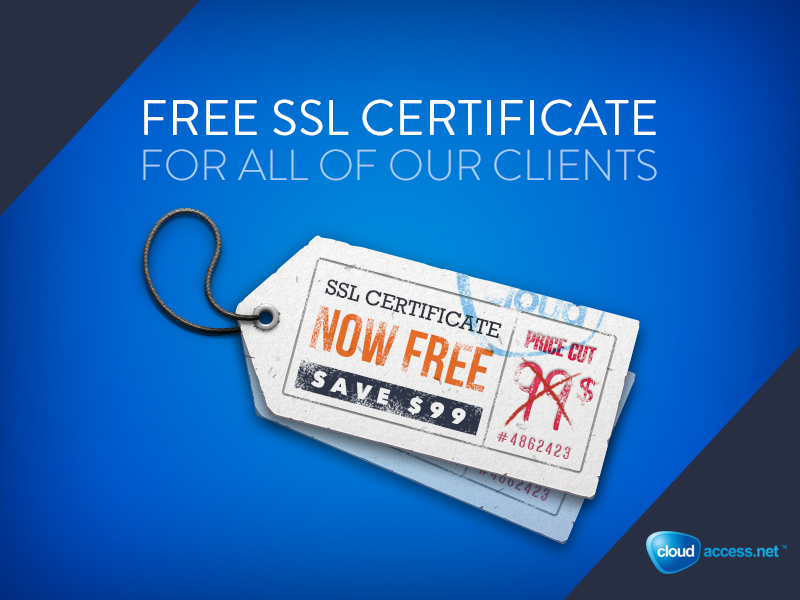Introducing 100% free SSL’s for our clients!

Add an SSL Certificate to your WordPress and Joomla sites for free with just the click of a button!
Here at CloudAccess.net we are constantly on the lookout for ways to improve our service and offer more value to our clients. We are proud to announce that LetsEncrypt SSLs have been integrated into the platform. If you are as excited about this as we are, be sure to send us a comment on Facebook, Twitter and Instagram!
Our new LetsEncrypt SSL offering is a great way to improve reputablity and security on your site. Even major search engines have indicated that they are now favoring sites that are secured with an SSL.
What is an SSL Certificate and why should I have one?
Great question! An SSL certificate enhances the security and reputability of your website by encrypting the communication between your website and the visitors computer.
How do I add a free SSL on my website?
It’s simple - Login to your Cloud Control Panel and then select (Manage > Security > LetsEncrypt SSL), then click the button to activate your new SSL. For more information, check out our knowledgebase article.
What is the difference between LetsEncrypt and Comodo SSLs?
While both offer end-to-end encryption of the traffic, our paid Comodo SSL’s are still recommended for sites with shopping carts, contact forms or user registration pages that deal with user data. Here are a few key differences between the two:
- Paid SSLs include a dedicated IP address, free LetsEncrypt SSLs do not.
- Paid SSLs are supported by older browsers and operating systems, free LetsEncrypt SSLs may not be supported in some cases.
- Paid SSLs include a warranty, free LetsEncrypt SSLs do not
I've enabled the SSL on my site and now see errors when accessing it though HTTPS, what should I do?
Most sites will work properly using https from the start. In some cases, a template, theme or plugin may cause the site to show errors when loading through https. In those cases we recommend using the commonly used tool WhyNoPadlock to see why the errors are presented.
I use a CDN or 3rd party DNS service, will LetsEncrypt SSL's still work?
This depends on how the service is configured. We have seen some cases where the SSL will install and work properly, and others where it does not. We recommend trying the install and if it fails or you are still not able to connect through HTTPS, then you may need to take extra steps like contacting your CDN or DNS provider.
Be on the lookout for more great features coming to the platform and as always, thank you for choosing CloudAccess.net.

